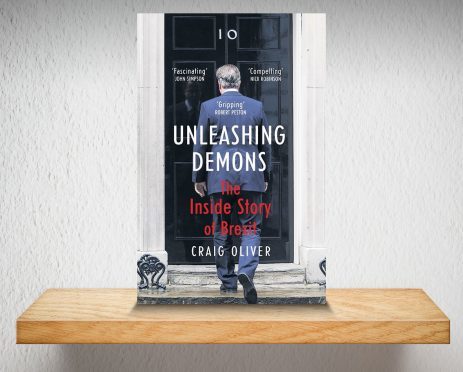Some history is written from a genuinely neutral perspective, some attempts to hide the ideological slant of the author, whilst some makes no such effort.
Craig Oliver’s Unleashing Demons, his account of the referendum on the UK’s membership of the European Union (EU), definitely falls into the third category.
David Cameron’s director of politics makes almost no effort to understand the motivations of his opponents, nor why he came to lose.
You lose track of the amount of times he says something along the lines of : “We’ve made it immigration versus the economy, we’re winning this.”
The only explanation of the defeat comes late on.
Oliver, whose father Dr Ian Oliver held the position of Chief Constable for Grampian Police, tells us his parents used to drive him to visit his poor grandparents in Torry, Aberdeen, when he was a youngster. Despite their poverty, they read the newspaper every day, watched the news and always voted.
Oliver argues that “somewhere along the line” people like them became disconnected from the political process, and the referendum became about more than the EU. This, he believes, explains the staggering results for Leave in some of the poorest areas, 61% for Leave in Sunderland and 62% in Aberavon.
The presence of Theresa May is a very interesting one in the book – given she later ascended from the defeat to become prime minister.
After a poor performance on the Andrew Marr show, Oliver gets a text from Will Straw asking: “Are we sure May’s not an agent for the other side?” Her reluctance to appear for the Remain side asks questions of where she stood, and when her aspirations to succeed David Cameron began.
Unleashing Demons is a first-hand account of a historic campaign which will shape the future of Britain – but there are no great insights about the weaknesses of the losing side or how the strategists got it so wrong.
